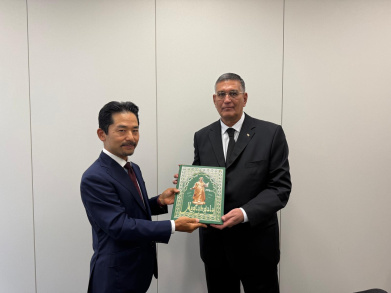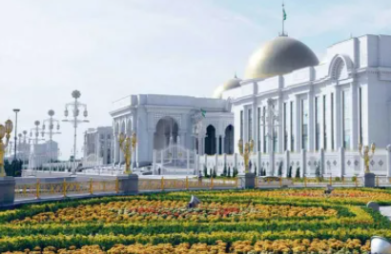CAEF: Turkmenistan Presented Its Vision of a New Architecture for Regional Cooperation
14.08.2025 | 13:44 |"Central Asia — a common space of trust, security and sustainable development" — this is the motto of the VIII Central Asian Expert Forum (CAEF) held in Tashkent on August 14-15. The event, organized by the Institute for Strategic and Interregional Studies under the President of Uzbekistan (ISRS), brought together leading experts not only from the states of the region, but also representatives of international organizations, analysts and diplomats from many other countries.
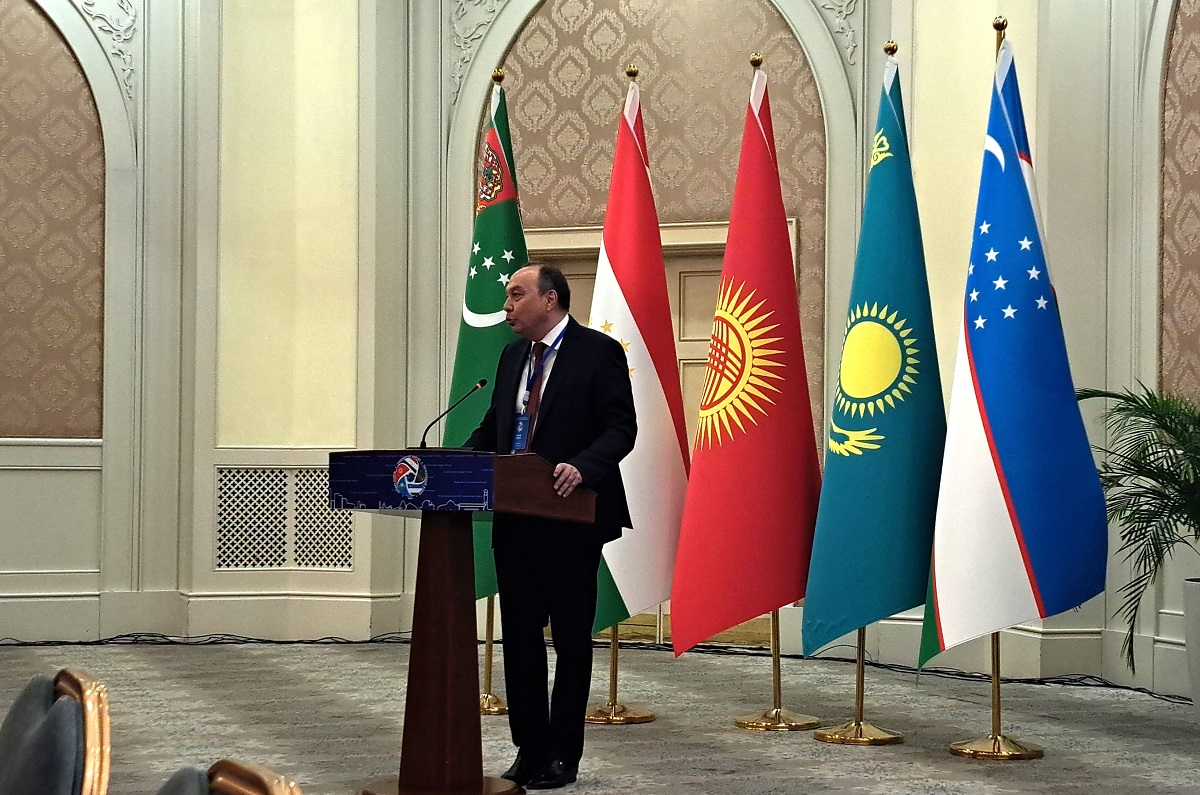
Opening the forum, ISRS Director Eldor Aripov noted that CAEF is becoming a "laboratory for generating new ideas" for strengthening regional cooperation. According to him, Central Asia has become one of the few successful examples of effective regional interaction against the backdrop of global turbulence.
As part of the first session of the forum, "New Central Asia: Improving the Architecture of Regional Partnership," Bekdurdy Amansaryev, an expert at the Institute of International Relations of the Ministry of Foreign Affairs of Turkmenistan, made a presentation. He stressed that today Central Asia is not just a geographical region, but an emerging space for political dialogue, economic integration and humanitarian rapprochement.
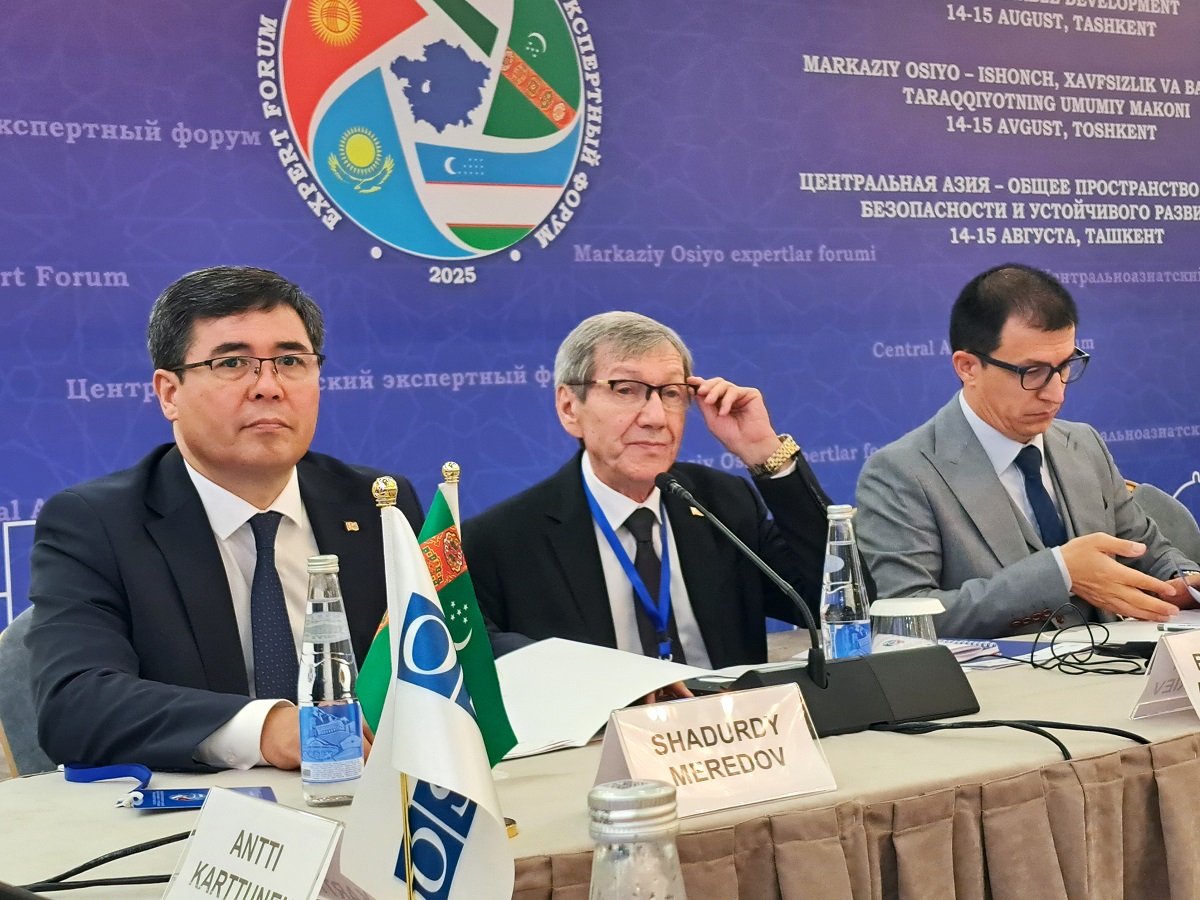
The role of Turkmenistan in the new regional agenda
The expert noted that Central Asia is becoming an active and responsible player in world politics, striving to be not an arena for rivalry, but a model of partnership. According to him, today there is a stable trend towards strengthening coordination between the countries of the region on the principle of "five plus one", as well as in the format of "five without external moderators" - which confirms the growing subjectivity of Central Asia. Turkmenistan, for its part, sees its role as an initiator and active participant in a positive cooperation agenda, based on the doctrine of permanent neutrality.
Bekdurdy Amansaryev dwelt in detail on the key areas in which Turkmenistan makes a significant contribution to the development of the region:
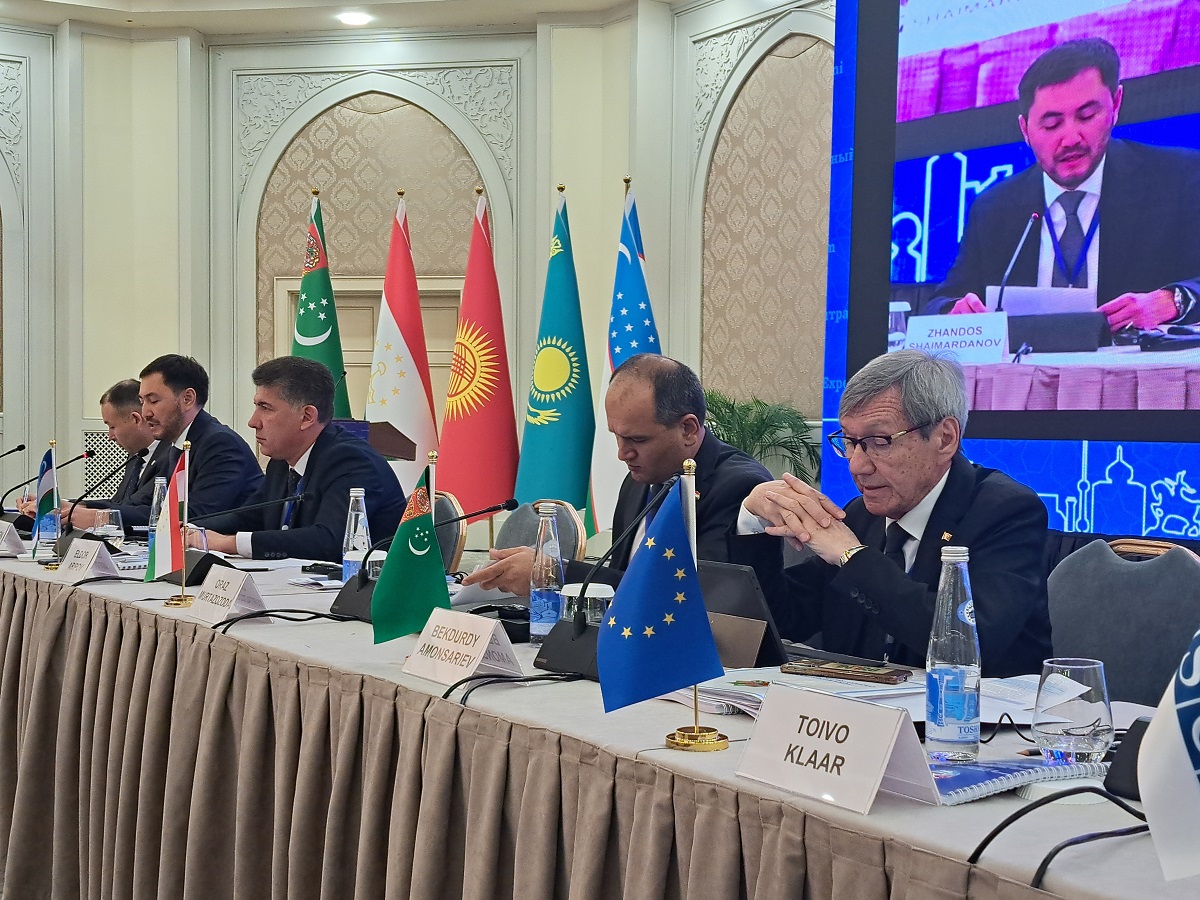
Peace and security. Peace and stability are an absolute priority. Turkmenistan advocates a peaceful, political and diplomatic solution to all contentious issues. Since 2007, the Regional Center for Preventive Diplomacy has been operating in Ashgabat under the auspices of the UN, which has become an important link in strengthening trust and early response to challenges in Central Asia. According to the expert, the region's security should be built on regional consolidation, not on an external military presence.
Transport and logistics interconnectedness. Infrastructure convergence is the basis for integration. Turkmenistan is actively developing the international transport corridors "North-South" and "East-West". In particular, the railway "Kazakhstan-Turkmenistan-Iran" with a transit capacity of up to 10 million tons of cargo per year is of particular importance. The construction of the railway line "Turkmenistan-Afghanistan-Pakistan" is also ongoing. Within the framework of the "East-West" corridor, the railway route "China-Kazakhstan-Turkmenistan-Caspian-Europe" is actively developing, and the recent creation of new container shipping routes from China to Turkey via Central Asia will further strengthen these ties.
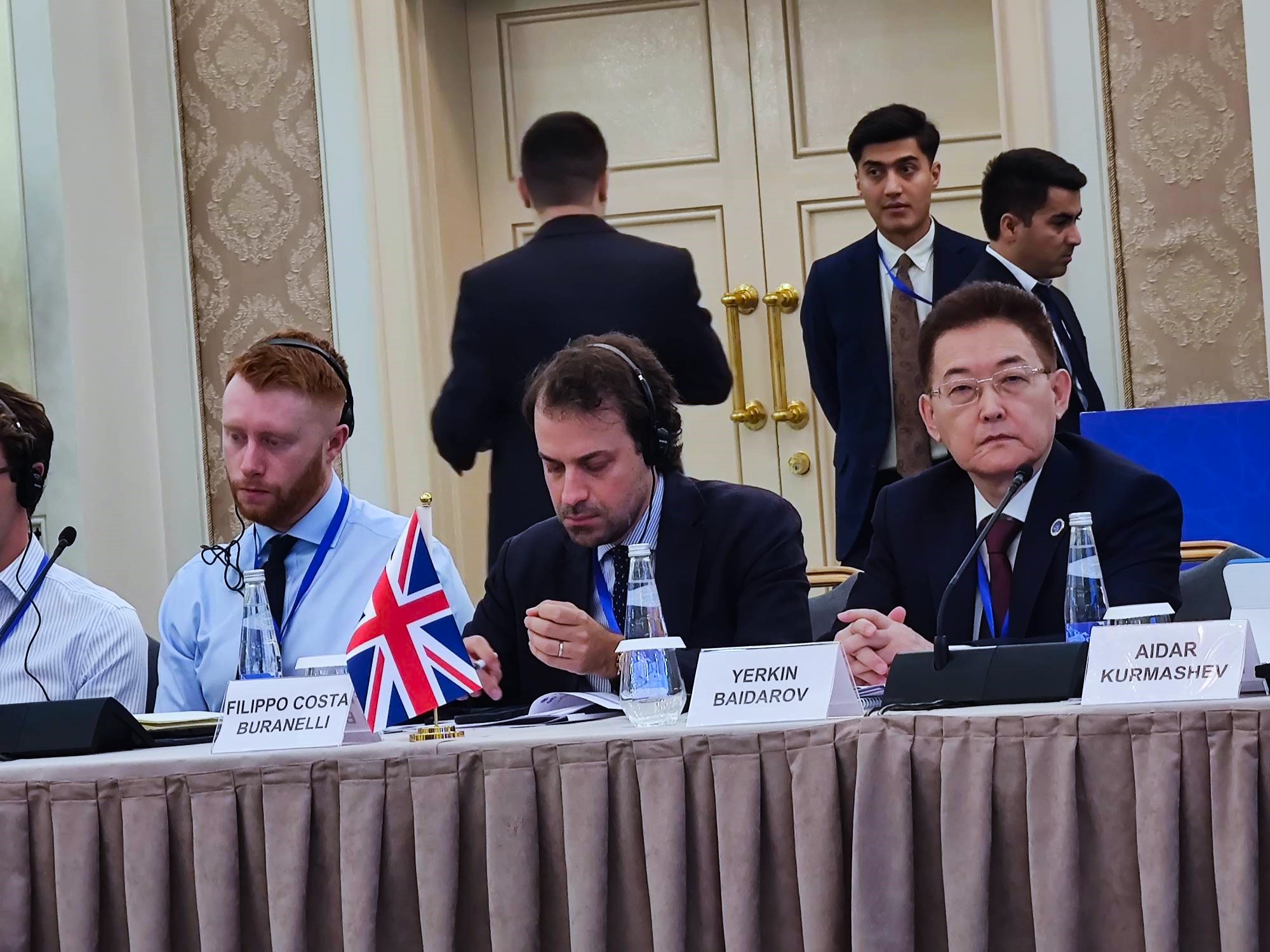
Energy cooperation. The speaker emphasized that Turkmenistan has huge reserves of natural gas, ranking fourth in the world. The country is actively diversifying export routes, including the implementation of the TAPI gas pipeline project. By the end of 2024, gas production exceeded 77.6 billion cubic meters, and exports - 40 billion cubic meters, the key directions of which are China, Russia and Iran. Swap supplies are carried out to Azerbaijan and Turkey. This energy potential is the foundation of the sustainability of the entire region.
Water agenda and ecology. Turkmenistan advocates for collective responsibility and proposes to develop a Regional Water Strategy based on international law. Within the framework of the International Fund for Saving the Aral Sea, the country initiated the Environmental Program for Central Asia until 2030, with an emphasis on combating desertification.
Humanitarian cooperation. Interaction in the field of culture, science and education is the "soft framework" of a long-term partnership. In 2023, more than 60 new agreements on inter-university cooperation were signed, which indicates the active development of these ties. Turkmenistan proposes to expand academic exchange programs and create joint research centers.
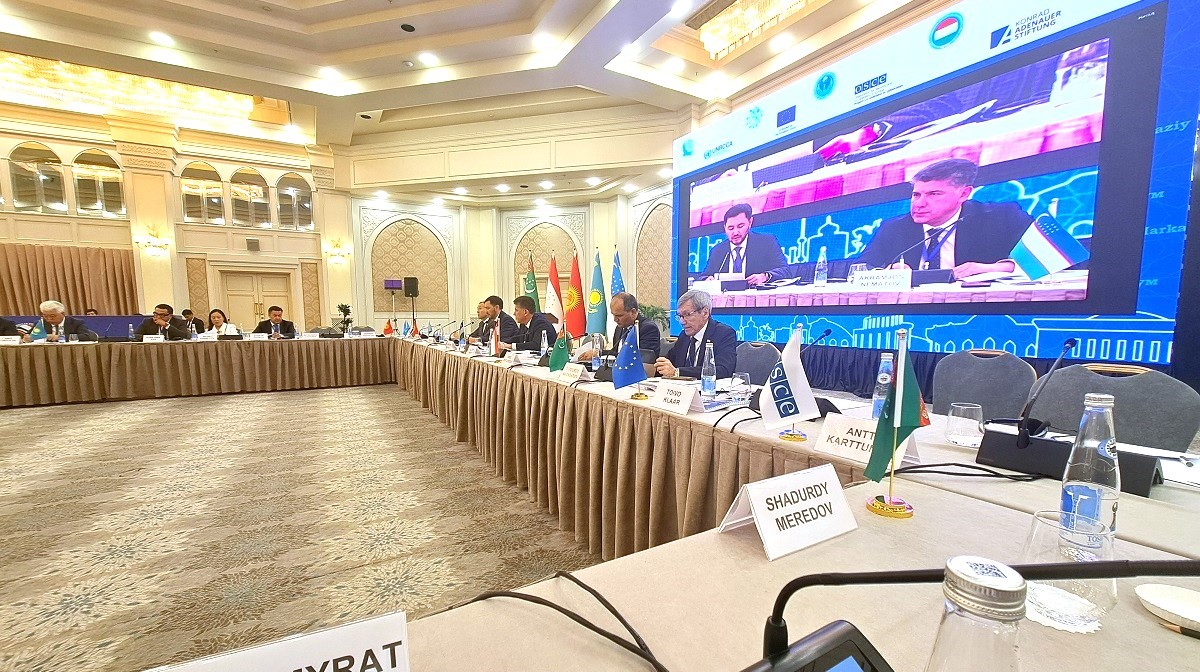
In conclusion of the report, Bekdurdy Amansaryev noted that Turkmenistan's permanent neutrality does not mean isolation, but serves as a platform for peacekeeping initiatives. The country confirms its readiness to further strengthen ties with the fraternal states of Central Asia, develop dialogue and contribute to the formation of a new model of fair and sustainable regional integration.
ORIENT


